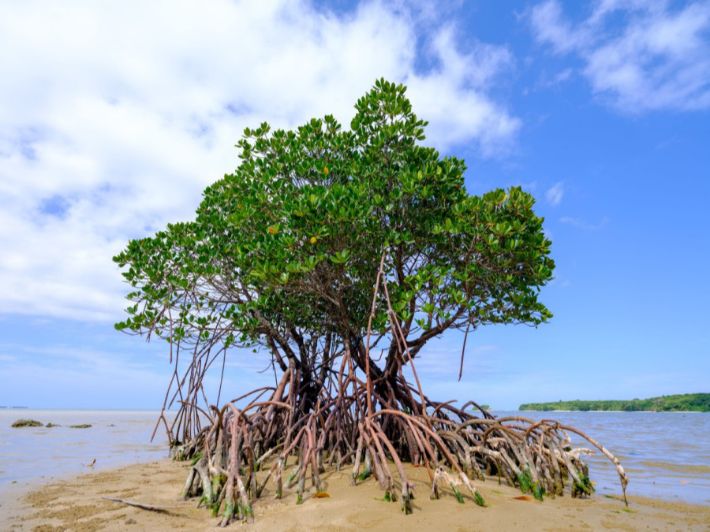Meeting to discuss and study a research project on mangrove trees, Thursday, August 8, 2024
Prof. Dr. Mohamed Abdel Azim, Vice President for Community Service and Environmental Development Affairs, met today, Thursday, August 8, 2024, with Prof. Dr. Sakina Ayyad, Professor of Botany at the Faculty of Science, Mansoura University, in the presence of Dr. Mustafa Amin, Director General of Environmental Projects, Dr. Magda Attia, Director of the Applied Research Department at the Environmental Projects Department, to discuss a new research project aimed at studying mangrove trees and their importance and environmental and economic benefits. He also discussed ways of joint cooperation regarding this project with the National Institute of Oceanography and Fisheries and Marine Research Institutes in the Arab Republic of Egypt, through a joint cooperation protocol.
The project aims to shed light on the vital role played by mangrove trees in protecting coasts from erosion, and their role as a host environment for many marine organisms. The research will also address the economic benefits of this type of tree, including its uses in the pharmaceutical and food industries.
Prof. Dr. Mohamed Abdel Azim, Vice President of the University, stressed that this cooperation will reflect the commitment of Mansoura University and the National Institute of Oceanography to enhance scientific and applied research that serves the community and contributes to preserving the environment. This project is expected to yield important results that contribute to enhancing knowledge about mangrove trees and encouraging their cultivation in coastal areas in Egypt.
For his part, Abdel Azim praised and expressed his hope that this research will yield practical recommendations that can be applied on the ground to support sustainable development and protect the marine environment in Egypt.
Mangrove trees are one of the most important coastal plants that contribute to achieving environmental balance, and they play a major role in facing the challenges of climate change and protecting coasts from the negative effects of natural factors.





